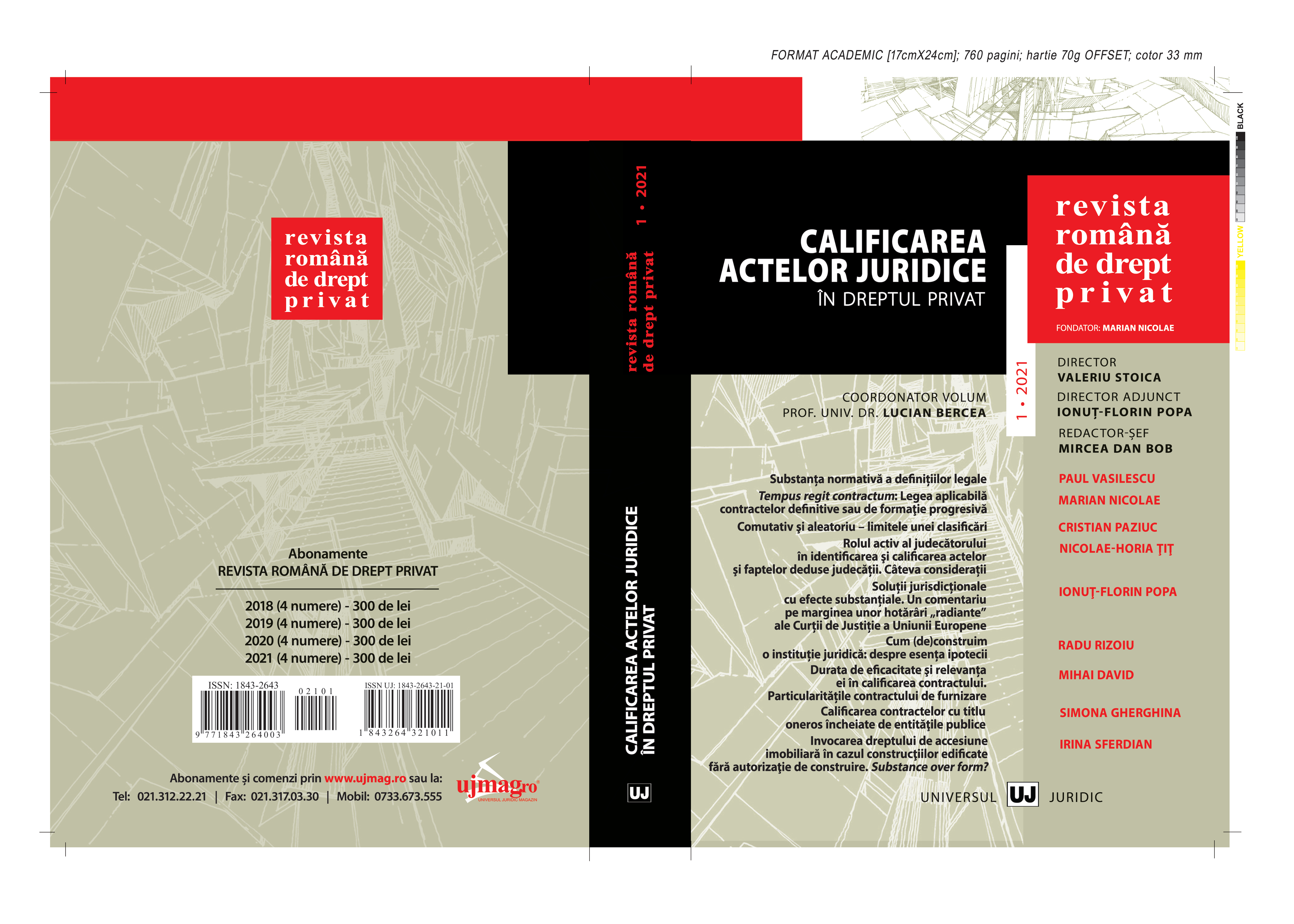Comutativ şi aleatoriu – limitele unei clasificări
Commutative and aleatory – the limits of a classification
Author(s): Cristian PaziucSubject(s): Law, Constitution, Jurisprudence, Civil Law
Published by: Universul Juridic
Keywords: contract; commutative and aleatory; legal risk and purely economic risk; lesion, hardship and the doctrine of risks;
Summary/Abstract: In the form enshrined in Article 1.173 of the new Romanian Civil code, the distinction between commutative and aleatory contracts reflects the jurisprudential image of these categories, developed, in France and in Romania, based on the texts of the Napoleonic Civil code and the Romanian Civil code of 1864, but with notable deviations from the original meaning of the classification. In particular: (i) the dichotomy thus inherited in the new Civil code uses, as its criterion, the degree of certainty of the contract’s legal effects – the existence (effectiveness) of rights and obligations, as well as the extent of their object – with the result that, in a technical sense, in an aleatory contract the anticipation of a chance of gain and a risk of loss flows from the possible variations of such legal effects, and not from mere fluctuations in the cost of performing or the value of the performance; (ii) the legal definition of the aleatory contract acknowledges the possibility that, in such agreement, the uncertainty of gains and losses itself, rather than just the uncertainty of legal effects, may be allocated to a single party, but Article 1.224 of the Civil code, which precludes reliance on lesion in aleatory contracts, is based on the jurisprudential consensus that the distribution of chances of gain and of risks of loss is always bilateral or multilateral. Against this background, the domain of contracts in which at least one party acts with a speculative purpose exceeds the category of aleatory contracts in a technical sense. At present, the legal classification of agreements in commutative and aleatory is not necessary for examining the validity of contracts regarded as essentially aleatory – the general requirement of the purpose fulfils this role – and has no practical use in establishing the scope of legal institutions which are generally regarded as incompatible with the assumption of risks, such as lesion, hardship and the doctrine of risks. The application of such institutions depends, in each particular case, on an individual analysis of the risks assumed, and not on the global classification of the agreement as technically commutative or aleatory.
Journal: Revista Română de Drept Privat
- Issue Year: 2021
- Issue No: 01
- Page Range: 113-142
- Page Count: 30
- Language: Romanian
- Content File-PDF

